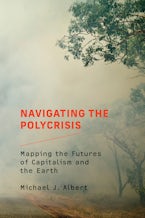Promoting environmental citizenship as a path to achieving sustainability—encouraging people to act according to the public environmental good—offers an alternative to the mainly market-based incentives used by most governments today. This book considers the theory and practice of environmental citizenship, the obstacles to its realization, and the opportunities it presents for bringing about environmental and social sustainability. The multidisciplinary perspective—drawing on work in sociology, political theory, philosophy, psychology, and education—and the variety of approaches (from high theory to ethnographic studies) all converge on the relationship between citizenship and sustainability. Placing environmental citizenship in the two-thousand-year tradition of citizenship itself, the book considers the nature, possibilities, and limits of citizenship as a way of promoting sustainability.
Part I considers the theory and practice of environmental citizenship—what it is and how it can be achieved. Part II examines obstacles and opportunities for environmental citizenship. The book covers such topics as the necessity of an active role for the state, the claims of environmental justice, the democratic potential of online participation in rulemaking, and the role of education in promoting environmental citizenship. The multidisciplinary perspective and the combination of theory and practice make the book ideal for classroom use.












